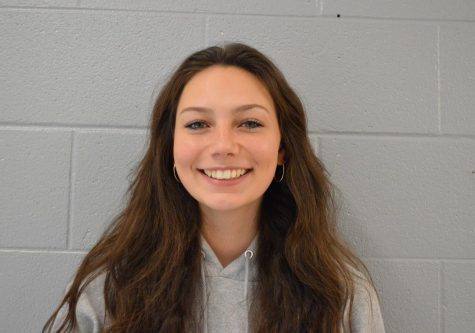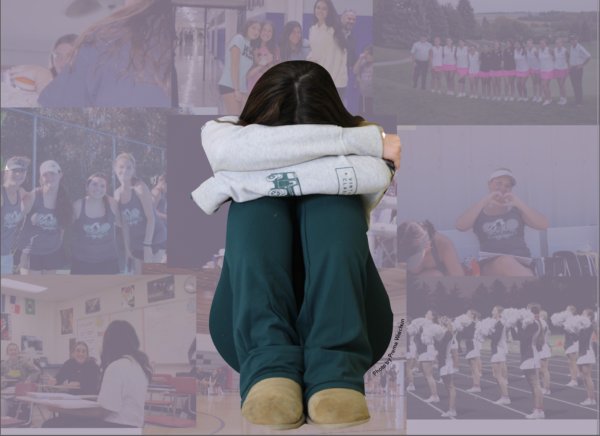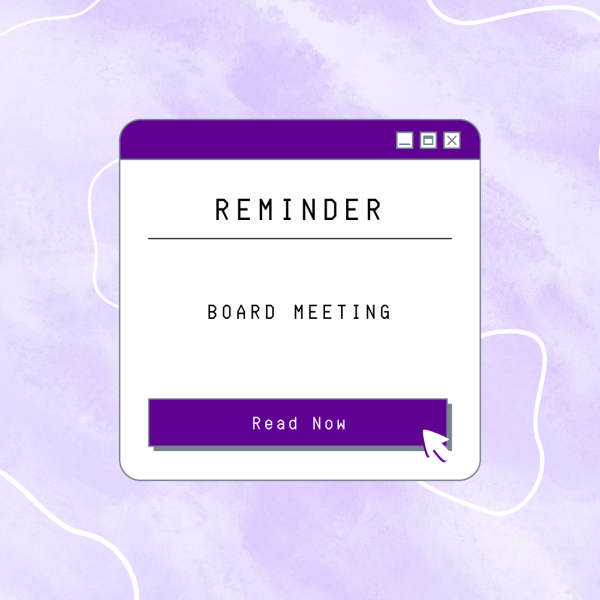Steps to take for College Applications
Photo By Christopher Fountain
2021 Kaneland graduate Christopher Fountain stands with his parents in front of a statue of the founder of the University of Notre Dame, Edward F. Sorin. Fountain majors in mechanical engineering.
College can provide a unique and life-changing journey for anyone who chooses that route. However, the dreaded storm before the rainbow is arguably one of the most important parts of the college experience. Taking standardized tests, working on your GPA, looking for schools that fit your wants and needs, deciding where to apply and ultimately determining where to attend are all key components in the early stages of your adventure. However, it can sometimes feel like we have no idea what the next step should be, like being aware of when and how to shift our focus going into junior year. We all wish we could skip to the good part, but knowing what to focus your energy on in these preliminary steps will not only part the clouds a bit, but potentially bring an even brighter sky.
UNDERCLASSMEN
Preparations begin during your high school underclassmen years, where you have to do a bit of self-exploration.
“In terms of what freshmen and sophomores should be doing, I think it’s a whole lot of figuring out what you’re interested in and thinking about long-term career plans, what kinds of things you like doing and just having an idea of a path,” English teacher Jennifer Sayasane said.
Kaneland guidance counselor Andrew Franklin believes that underclassmen years should be dedicated to good grades (as always) and finding a passion rather than finding a college, major or career path. He also said that sophomore year is the first time you get to have a little bit of a say in what classes you take.
“Sophomores have more opportunity to take more classes that are interesting to them…you can actually start doing things,” Franklin said. “[For example], are you a more engineering-type of kid? Push yourself towards more math or intro to engineering classes.”
Allowing yourself to focus on a field, such as engineering, instead of a career allows you a lot more creative freedom and encourages open-mindedness.
“The first thing is figuring out what you want to do, and if it’s not a career, it’s a field…Your freshman and sophomore years are really just exploring different areas of interest,” English teacher Rachel Giles said. “But you don’t have to know exactly what you want to do…it’s going to change from the time you start here to the time you end here.”
Giles, who worked in the office of admissions at Illinois State University for about three years, is now in her eighth year at Kaneland, where she is also the theater director.
UPPERCLASSMEN
“I think junior year is a good time to start thinking about, ‘How do I actually make that plan happen?’ So [look] at, ‘Is college going to be the path for me?’ Look at career options, and look at other options in order to get where you want to go. Senior year is going to be about actually making those choices,” Sayasane said.
Kaneland administrators want to be supportive during this process. In fact, the school plans to be an even bigger part of the process starting next year.
“We try to have junior meetings as best as we can. We’re really going to push towards the juniors to get a lot more information this year, and next year, we’ll have even more opportunities because we’ll have homeroom, which is great,” Franklin said.
Franklin encourages everyone to take a visit to the College and Career Center here at Kaneland (located in the cafeteria) at least once or twice. The staff members there will help you figure out some ideas regarding what the best path for you may be, whether it’s a two-year college, a four-year university or even going into the trades.
“Junior year, you really don’t need to hard-core know what you want to do, but you should have an idea if you want to go into a trade, or if you want to go to Waubonsee to get [general education classes] done or if you want to do a four-year university; knowing the next step [is important],” Giles said. “Senior year is when you really want to buckle down and figure out some of the logistics of that next step. But you still don’t have to know what you want to do.”
HOW MANY COLLEGES SHOULD YOU APPLY TO?
Kaneland’s class of 2021 valedictorian Christopher Fountain now attends the University of Notre Dame as a mechanical engineering major. He thinks he applied to more schools than necessary. “I applied to nine schools, which in retrospect was too many. I probably could have narrowed my list down to about five,” Fountain said.
However, if you’re more like Kaneland senior Scott Remrey, you may have been able to shorten that list to just a couple.
“I only applied to two schools because I have an idea of where I want to go, which is University of Washington. So I applied there and then to a backup school, which was Montana State,” Remrey said.
The application process is so different for everyone. You might hear back from a school months before or after your friends. It all plays a huge role in the decisions one must make during the college application process. However, Giles recommends applying to at least a few schools.
“I applied to three. I knew I was going to [Illinois State University], but my parents wouldn’t let me only apply to one. I applied to one small, one medium and one large school. I don’t really think there’s a formula, but I think you should definitely apply to more than two so you have some options, but I don’t think you should apply to a school if you’re genuinely not interested in attending,” Giles said. “I would say three to five is a good range. Make sure you visit those schools.
Sayasane suggests applying anywhere you have an eye on, because you might receive a scholarship you never would have expected.
“I don’t know if there’s a formula. I think it’s just good to have a couple of options because you don’t know what kind of financial package you’re going to get until you actually apply,” Sayasane said.
GPA, SAT, OR ACT?
Franklin, Giles and Sayasane all agreed that your GPA is the most critical component of your application in relation to your college acceptance chances and your likelihood to receive scholarships. Fountain and Remrey said the same.
“Your GPA is so much more important than your test scores. Most schools were test-optional [during] my application season,” Fountain said. “However, I believe my extracurricular activities and essays helped me more than my grades. Colleges like to see that you are well-rounded.”
Numerous schools are going test-optional because they are slowly becoming more interested in each student personally, rather than being overly concerned with their test scores. Either approach can make sense depending on what the school prioritizes. Like Fountain suggested, Remrey has prioritized his GPA.
“I feel like [your GPA] is what schools mostly look at, especially today, with many not even requiring the SAT and ACT,” Remrey said.
Sayasane believes the reason so many schools are going test-optional is because one test on one random day of the year doesn’t define you nearly as well as your entire high school career encapsulated into a much more representative number.
“More and more colleges aren’t requiring those SAT and ACT scores, so there’s more and more emphasis on your GPA. I think that gives schools a better picture of who you are over the course of a year, or who you are over the course of three or four years, instead of a one-shot, high-stakes test,” Sayasane said.
WORDS FROM LAST YEAR’S VALEDICTORIAN
“For those looking at colleges, go where you want to go, not where your friends want you to go and not your teachers; go where you want to go. At the end of the day, college is about finding yourself, and you won’t achieve that if you go somewhere where you don’t feel at home. For underclassmen, enjoy high school,” Fountain said. “My last piece of advice goes to both underclassmen and upperclassmen: enjoy home-cooked meals while you can, and spend time with your family. You’ll miss them both more than you realize.”

Position: Lifestyle Editor
Graduation Year: 2022
My Future Goals: I think I will be going to college in Florida and hope to major in communication...










